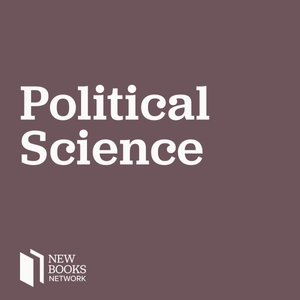
Data Science #9 - The Unreasonable Effectiveness of Mathematics in Natural Sciences, Eugene Wigner
09/10/24 • 84 min
In this special episode, Daniel Aronovich joins forces with the 632 nm podcast. In this timeless paper Wigner reflects on how mathematical concepts, often developed independently of any concern for the physical world, turn out to be remarkably effective in describing natural phenomena.
This effectiveness is "unreasonable" because there is no clear reason why abstract mathematical constructs should align so well with the laws governing the universe. Full paper is at our website:
https://datasciencedecodedpodcast.com/episode-9-the-unreasonable-effectiveness-of-mathematics-in-natural-sciences-eugene-wigner-1960
In this special episode, Daniel Aronovich joins forces with the 632 nm podcast. In this timeless paper Wigner reflects on how mathematical concepts, often developed independently of any concern for the physical world, turn out to be remarkably effective in describing natural phenomena.
This effectiveness is "unreasonable" because there is no clear reason why abstract mathematical constructs should align so well with the laws governing the universe. Full paper is at our website:
https://datasciencedecodedpodcast.com/episode-9-the-unreasonable-effectiveness-of-mathematics-in-natural-sciences-eugene-wigner-1960
Previous Episode

Data Science #8 - The Turing test by Turing Alan "Computing machinery and intelligence" Mind (1950)
This paper is a foundational text in the field of artificial intelligence (AI) and explores the question: "Can machines think?" Turing introduces what is now known as the "Turing Test" as a way to operationalize this question, he called it the imitation game. Are there imaginable digital computers that could perform well in the imitation game? The imitation game involves an interrogator trying to distinguish between a human and a machine based on their responses to various questions. Turing argues that if a machine could perform well enough in this game to be indistinguishable from a human, then it could be said to "think." He explores various objections to the idea that machines can think, including theological, mathematical, and arguments from consciousness.
Turing addresses each objection, ultimately suggesting that machines can indeed be said to think if they can perform human-like tasks, especially those that involve reasoning, learning, and language.
Next Episode

Data Science #10 - The original principal component analysis (PCA) paper by Harold Hotelling (1935)
Hotelling, Harold. "Analysis of a complex of statistical variables into principal components." Journal of educational psychology 24.6 (1933): 417.
This seminal work by Harold Hotelling on PCA remains highly relevant to modern data science because PCA is still widely used for dimensionality reduction, feature extraction, and data visualization. The foundational concepts of eigenvalue decomposition and maximizing variance in orthogonal directions form the backbone of PCA, which is now automated through numerical methods such as Singular Value Decomposition (SVD). Modern PCA handles much larger datasets with advanced variants (e.g., Kernel PCA, Sparse PCA), but the core ideas from the paper—identifying and interpreting key components to reduce dimensionality while preserving the most important information—are still crucial in handling high-dimensional data efficiently today.
If you like this episode you’ll love
Episode Comments
Generate a badge
Get a badge for your website that links back to this episode
<a href="https://goodpods.com/podcasts/data-science-decoded-556870/data-science-9-the-unreasonable-effectiveness-of-mathematics-in-natura-73647209"> <img src="https://storage.googleapis.com/goodpods-images-bucket/badges/generic-badge-1.svg" alt="listen to data science #9 - the unreasonable effectiveness of mathematics in natural sciences, eugene wigner on goodpods" style="width: 225px" /> </a>
Copy




